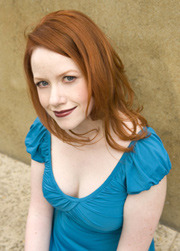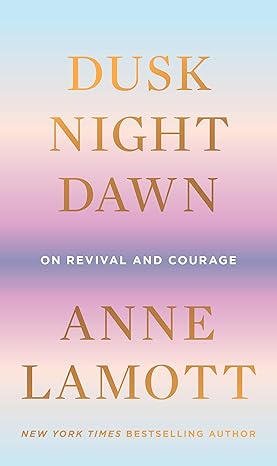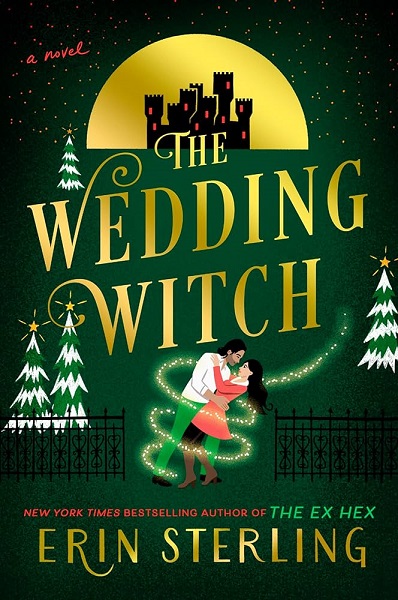In a futuristic world nearly destroyed by religious extremists, Justin March lives in exile after failing in his job as an investigator of religious groups and supernatural claims. But Justin is given a second chance when Mae Koskinen comes to bring him back to the Republic of United North America (RUNA). Raised in an aristocratic caste, Mae is now a member of the military’s most elite and terrifying tier, a soldier with enhanced reflexes and skills.
When Justin and Mae are assigned to work together to solve a string of ritualistic murders, they soon realize that their discoveries have exposed them to terrible danger. As their investigation races forward, unknown enemies and powers greater than they can imagine are gathering in the shadows, ready to reclaim the world in which humans are merely game pieces on their board.
Gameboard of the Gods, the first installment of Richelle Mead’s Age of X series, will have all the elements that have made her YA Vampire Academy and Bloodlines series such mega-successes: sexy, irresistible characters; romantic and mythological intrigue; and relentless action and suspense.
Review:
I wish I could say that Gameboard of the Gods starts off with a bang, but it doesn’t. Despite a one-night stand between the main characters fairly early on, the beginning of the book is a long, slow set-up. Really long — the plot doesn’t get kick into gear until almost halfway through the book’s 470-odd pages.* I put up with that and pressed on because Mead can write; her visual descriptions are vivid, her dialog flows well, and her characters are reasonably complex.
That doesn’t mean I always liked the main characters, particularly at first. Justin is brilliant; he’s also arrogant and manipulative, which annoyed me even — or maybe especially — when he’s doing it for the other person’s good. Mae is easier to relate to in some ways, but her physical perfection, her attempt to suppress emotion, and her athletic and military prowess, enhanced by her “implant”, were a bit overwhelming at times.
Justin and Mae’s relationship is prickly and filled with tension, sexual and otherwise. After their first and only sexual encounter, Justin fights his attraction to Mae, trying to alienate her for reasons that eventually become clear. Mae, for her part, is hurt by his rejection, which she covers with her typical aristocratic coldness. Yet despite their tensions and misunderstandings, they are able to build something of a working partnership, which grows in strength once Mae is forced to accept the existence of supernatural powers — something Justin knows all too well from personal experience.
Some of the secondary characters intrigued me too. I enjoyed Justin’s ward Tessa and her outsider’s view of the RUNA, although to be honest, neither the character nor her scenes advance the plot in the least. Justin’s friend Leo and Leo’s spouse Dominic also interested me. Leo is a technician and a scientist; like most of the citizens of the RUNA, he’s completely convinced that the supernatural does not exist, even in the face of evidence to the contrary. Dominic grows grapes and makes (not very good) wine, but it’s clear that there’s more to him than that. Or rather, it’s clear to the reader and to Leo and Mae; Justin seems oddly blind to the oddities in Dominic’s backstory and behavior.
In fact, Justin’s occasional blindness to the blindingly obvious is one of the flaws in the novel. Here’s a guy who is known for his genius-level ability to observe and draw conclusions. His talent is why he has been brought back to the RUNA in the first place. Yet he fails to recognize the truth about Dominic, although Mae certainly has her suspicions.
Additionally, Justin’s job, both now and in the past, involved investigating religious “cults” (the term applied to any religious group by the fiercely anti-religion RUNA.) But there’s something supernatural taking an interest in Justin, and one huge clue to its identity is his “ravens” — the voices inside his head. And this guy who studies and knows about lots of religions hasn’t a clue which god it might be? Oh, please. I spotted it instantly, as will anyone with a passing acquaintance with European mythology. That Justin didn’t catch on for fully three-quarters of the book required a suspension of disbelief I was simply unable to muster.
A number of reviewers have commented, positively or negatively, on Mead’s worldbuilding. While I felt it was a bit inconsistent and not terribly original, it worked pretty well overall. . . eventually. There were a several minor irritations; for instance, the term “RUNA” went unexplained for an unforgivably long time. It would have been so easy to slip a “Republic of United North America” in there somewhere, much earlier than it actually appeared. The events of the past that led to the RUNA’s formation, to its structure, and to its almost irrational suppression of religion were never really clear. I felt as if some of the worldbuilding was cobbled together to support various plot points, and yet, as I said before, once the world began to really take shape in my mind, it worked well enough. However, both the plot and the essential world-building should have moved at a faster pace.
Once the action finally got going, I found the book much more interesting, enough so that I’m considering reading the sequel. That would be an easier choice if I had connected more with the two main characters. As it is, my interest is more intellectual than emotional: I want to know what happens, but I don’t care as deeply about the characters as I’d like.
Bottom line: Gameboard of the Gods mars a promising premise with somewhat flawed execution. If you can push past the very slow first half, the action and the interest level both pick up, and the characters do become more engaging.
* 471 pages in ePub format.
Rating: 2.5 stars
 About the author: Scorpio Richelle Mead is a New York Times and USA Today bestselling author of urban fantasy books for both adults and teens. Originally from Michigan, Richelle now lives in Seattle, Washington where she works on her three series full-time: Georgina Kincaid, Dark Swan, and Vampire Academy.
About the author: Scorpio Richelle Mead is a New York Times and USA Today bestselling author of urban fantasy books for both adults and teens. Originally from Michigan, Richelle now lives in Seattle, Washington where she works on her three series full-time: Georgina Kincaid, Dark Swan, and Vampire Academy.
A life-long reader, Richelle has always loved mythology and folklore. When she can actually tear herself away from books (either reading or writing them), she enjoys bad reality TV, traveling, trying interesting cocktails, and shopping for dresses. She’s a self-professed coffee addict and has a passion for all things wacky and humorous.
(Biography source: Goodreads)
Find out more on Richelle Mead’s website.
Category: SF/Fantasy (elements of both)
Series: Age of X #1
Publisher: Dutton Adult
Release date: June 4, 2013
Book source: Review copy from the publisher, through NetGalley
Links: Goodreads Amazon Barnes & Noble Kobo








































Sandy Farmer
Gameboard of the God was definitely my least favorite book that I’ve read by Richelle Mead. It was definitely slow all around for me. I wasn’t (and still am not) too familiar with European mythology so the raven thing wasn’t something I noticed that I felt like Justin should have known about–but that’s only because I didn’t know about it myself. I definitely agree that it was hard to jump into her “world” without knowing more about it. I felt like there should have at least been a glossary included–and maybe there was in the final version, but not in the eGalley that I received. Great review.
Sandy @ Somewhere Only We Know
Lark @ The Bookwyrm's Hoard
Yes, for a book that spent so much time on set-up, the worldbuilding was confusing at first. I read an e-galley, too, so I don’t know if she included a glossary, but that would have been a terrific idea.
Despite my quibbles with the book, it has stayed with me; I’m still thinking about it, and it’s been nearly a month since I finished it. I am going to have to read the next one to find out what happens next.